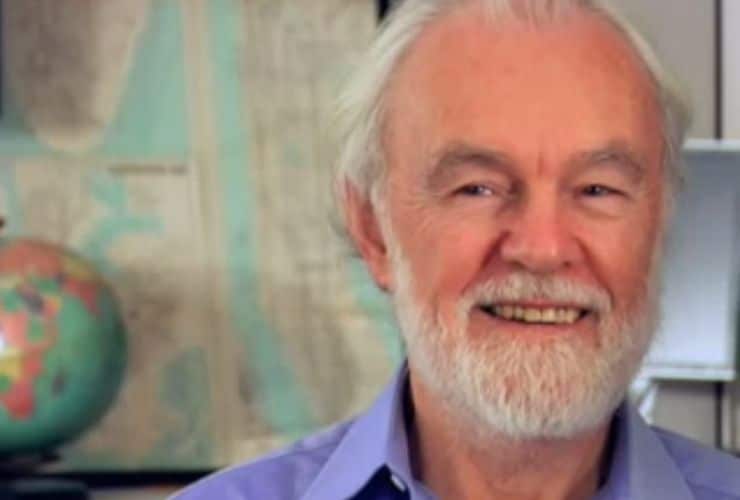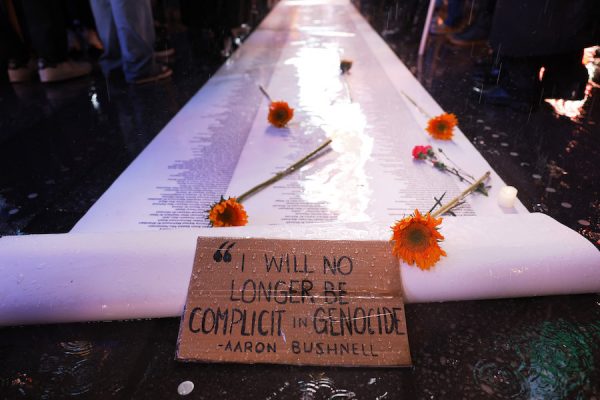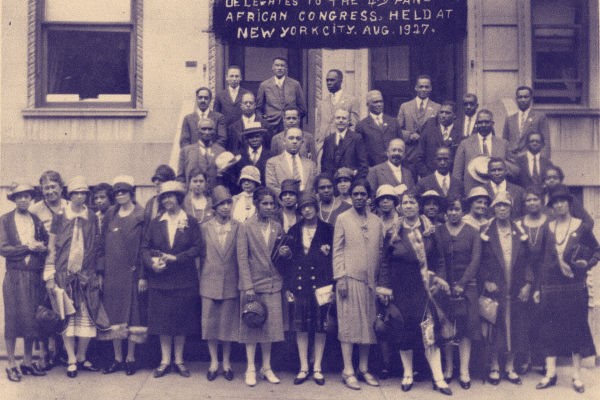From La Paz to New York to Athens, urban centers have become the loci of struggles for social justice. In his new book, Rebel Cities, Marxist geographer David Harvey frames these uprisings as the proper assertion of public rights to the city against the excesses of neoliberal capitalism—skyrocketing rents, austerity cuts to public services, foreclosure fraud. Web Editor David Johnson spoke to Harvey before May Day about how the titans of capital are like butterflies, the fetishes of mainstream urban liberals, and whether the Occupy movement can live without occupations.
DJ: You begin the book by discussing French sociologist Henri Lefebvre’s notion of “the right to the city”—that we collectively have the right to live in the city and shape its development. Why think of the city in terms of rights at all?
DH: First off, there is a question of the right of access to all of the resources that, collected together, make up an urban environment, which is both social and political as well as physical. So there’s a question of who has access and whether we all have equal rights of access. But then there’s a question of the making of the city—which is actually much more interesting to me— such as who has the power to remake cities in a different image and in whose image will they be remade. The question of rights comes into that as well: “Who has the right to struggle over what kind of city we want to make?” Because the question of what kind of city we want to make defines the question of what kind of people we want to be.
DJ: You claim in the book that we need alternative forms of urbanization if we are interested in pursuing an anti-capitalist alternative. Are there any cities that offer examples of what you have in mind?
DH: Well, right now we don’t have any cities that are outside of capitalism that we can really effectively look at. We can see certain things happening within cities that are anti-capitalist in tone, that are much more about trying to reorganize a collective life, a more sustainable kind of political and environmental life. But can you say that there is any city itself which has moved toward an anti-capitalist agenda? I think the answer is no.
DJ: The upshot of the book is that the city is the locus of anti-capitalist struggle. One worry I have in thinking about this problem is that capitalism nowadays is something that transcends location and city. For example, consider Occupy Wall Street: they were protesting in the financial district of Manhattan, but a lot of the investment banks are in Midtown, their CEOs are traveling all over the world, they live in . . .
DH: . . . Greenwich, Long Island . . .
DJ: Exactly. And their money’s offshore and they have business all over the world and supply chains are global. So why think that urban struggle is really going to change things?
DH: Well, here I am looking out of my window at all the skyscrapers around me: they’re fixed in place, they don’t go walking. And a vast flow of money goes through them and comes out the other side in the form of very high rents. The whole of Manhattan is organized around gated communities of the very rich and the wealthy. Meanwhile, there are a million people in New York City who try to get by on less than $10,000 a year. Half of the population of New York City earns less than $30,000 a year. And yet there’s this immense collection of buildings and so on where in order to find a place to live, you’ve got to pay at least maybe $50,000 a year to rent it. This is a kind of city we have built, and this is where we struggle in our own backyard to define a reasonable kind of life for the mass of the population. Finance capital can run around the world—it’s what I call the “butterfly” form of capital—but the butterflies have to land somewhere. And where do they land? Well, they land in Manhattan, a lot of them, and they build these vast complexes and so on. And I think we struggle where the butterfly lands, and if it sits elsewhere, then we struggle there as well.
One of the things that interests me is the simultaneity of what goes on in the urban network. Occupy Wall Street was about Wall Street, but Occupy movements sprung up in a hundred odd cities in the United States, and you can find Occupy movements in Europe and around the world. So the urban network is actually a very powerful set of political possibilities. Part of my argument is that we should be thinking about how to use the urban network and how to use the political power that lies with closing cities down or intervening in cities as part of what political struggle is all about.
DJ: Reading your book, I was reminded of The Atlantic’s special Web site on cities. What do you make of the fact that Atlantic Cities would launch at this time?
DH: I haven’t read The Atlantic, but look: over the last 30 years, metropolitan regions have become much more significant in terms of capitalist organization. You see this in Europe and in the United States. An interurban competition has become a far more vigorous aspect of how capital works. And so there’s been a revitalization of the significance of the urban, in terms of how global political economies work, and so we have all this stuff about global cities, which is usually about finance capital and the global production cities—places such as Bangalore Shenzhen, and so on. So I think the urban is a very interesting political level at which to look at things.
DJ: Mainstream liberals who talk about urbanism focus a lot on environmentalism and culture. Cities promise greener forms of living, since they offer greater density and more efficient energy use. And these liberals obsess over green architecture, high-speed rail, and so on, as well as about cities as centers of “creative culture.” Would you say they’re guilty of a certain fetishism over green living and culture?
DH: Very much so. As I try to point out in the book, the culture industries are very much caught up in the search for monopoly rent. It’s interesting that they’re called “industries” these days, which means that there’s a commodification of culture and an attempt to commodify the cultural commons and even commodify history, which is an astonishing process.
A lot of the green stuff is about planting trees and making things look greener. But I’ve yet to see a really radical reconfiguration of urbanization that would really confront the questions of global warming. So the liberal view does that, but what it doesn’t pay attention to is the tremendous social inequalities that exist. In New York, the social inequalities are dramatic, and we have huge concentrations of what we call precarious and insecure, employed people in these cities. In a way it’s an urban proletariat that is engaging in the production and the reproduction of urban life, and I don’t see the liberals taking any notice of that as being a problem. I mean, the levels of social inequality in New York City are far, far greater now than they were 30 years ago, and I would not be at all surprised to see an urban insurrection going on over those levels of inequality.
DJ: Well, you do see the New York Times talking about how hard it is to make it in Manhattan if you earn $250,000. [laughter]
DH: You try making it on less than $30,000. That’s half the population of the city!
DJ: People such as Richard Florida talk about the creative classes and how important they are to the culture and economy of the city. One point you make in the book is that the creative culture of the city involves a lot more people than just members of “the creative classes.”
DH: Yes, this notion of the creative class is very much latched onto by political organizations to try to bring in high-tech jobs. I remember being in Berlin, where there was an attempt to colonize a whole area—which is a very interesting lifestyle developed by the anarchists and the squatters over the years—and they put up these big banners saying “We are the creative classes!” But they’re not the people that the authorities in Berlin wanted to support.
Florida’s project is a class-biased project towards a certain kind of cultural group in the underclasses that like to sit around and strum guitars as they play with their innovative software and all the rest of it.
DJ: There are a lot of stories about the reversal of the flight from the urban core that we saw from the ’70s onward. So there’s been a revitalization or gentrification of urban centers, and a corresponding flight by poor, working class people out of urban centers, as well as a growing suburbanization of the poor and decline in suburban livelihood. Does this trend present a challenge to your view?
DH: Well, first of all, it’s not a flight of the impoverished and the working classes from the city—it’s an expulsion. They’re being forced out by high rents and by eminent domain and all those kinds of things. And they’re now living out on the periphery.
Manhattan is a very good example of this. I came in to Kennedy airport at 6 o’clock in the morning early this month, and I got on the E-train, and at that time it’s packed with mainly women of color, obviously exhausted, going in to Manhattan to wake the city up, or to take care of the kids of the rich folk when they go off to Wall Street or wherever. And they’re living way, way out there. They’re the people living on less than $30,000 a year, and they’ve been effectively expelled from the city.
That brings me back to the question: To what degree does that population have a right to the city? The answer is: it doesn’t. And that’s what has to be struggled for: that they should have a big say in how the city is made and how the city is remade in ways which are more favorable to them rather than to the 1 percent.
DJ: In several places in the book, you take issue with the anarchist wing of the left. So, for example, you criticize them for obsessing over horizontal, anti-hierarchical organizational structures. And you also say that there’s a lack of political coherence among the left. Why think that Marxism might provide a better way to gain a coherent politics and organization on the left?
DH: I work from a Marxist base, but I come from a tradition that admires certain kinds of social anarchists, and I quote favorably people like Murray Bookchin.
DJ: There you argue that Murray Bookchin had a more reasonable answer to the problem of how to organize for large-scale reform, given the limits of horizontal, anti-hierarchical political structures.
DH: One of the things I criticize the left for is what I call “fetishism of organizational form,” and it’s not only anarchists. The communist parties of yore used to have a democratic centralist model from which they would never depart, and it had certain strengths and it had certain weaknesses. Now there are certain elements within the anarchist movement that now believe totally in this horizontality idea and will not contemplate anything that is hierarchical. So I say, “Well, look, you’re disempowering yourself by sticking to that as the only organizational form which is viable.”
Again, there are certain anarchists who think that it’s reasonable to negotiate with the state or to try to reform the state and certain anarchists who say they want nothing whatsoever with anything that looks like state power. I have problems with that. My concern would be to say, “Let’s try to think of an organizational form that can confront the nature of the problems that we face,” which include, by the way, the one that you talked about earlier about the global nature of the struggle. You cannot imagine that we could simply have socialism in New York City and nowhere else. We’ve got to start thinking about all of the international relations and international divisions of labor and the like. So I’m more concerned with finding a practical form of organization, which can confront the nature of the problems we face, and I find that these rather dogmatic assertions by the communists, on one hand, and some of the anarchists, on the other, that “This is the only form of organization which is acceptable” get in the way of a fluid discussion over what would be a good form of organization for political mobilization right now.
DJ: Do you think that we’ve come to any sort of promising conclusions about organizational form, or is this a debate that needs to take place over the course of many years?
DH: Oh, I think it’s a debate that’s unfolding, but it can unfold very rapidly. I mean, there are places in the world where people seem to have found ways to pin together both the horizontal and the hierarchical. I mention the case of El Alto in Bolivia, where that seems to have happened. There are other cases; I’ve been very impressed by the example of the Chilean student movement, which is very democratic and horizontal but at the same time accepts that there is a need for decisive leadership. As more and more models of that sort come to our attention, I think that more and more people will start to converge on a practical organizational form. At least that’s my hope. And I think what I was trying to do in the book was to contribute to that process by both critiquing fetishism and then talking about examples where it seems some mixture of organizational forms has been very successful.
DJ: Now that we’re in Spring, people in the Occupy movement are wondering, “Where do we go from here?” Can there be an Occupy movement without occupation—without actually occupying public spaces? It seems as though occupying public spaces is a very powerful form of protest that has succeeded in Egypt and elsewhere. So why not just continuing occupying?
DH: Well, I think there are intermediate forms of it. One example that I was talking about with some people the other day is the Madres de Plaza de Mayo in Argentina who, instead of occupying all the time, turned up once a week to a particular space to demonstrate over the question of what had happened to their disappeared children and grandchildren. Of course, they suffered a great deal of police harassment and in some cases violence, but they just kept coming there every week. We could do something like that: we could go to Zuccotti Park once a week and say, “Look, we are still here!” It could be a visible thing. Some weeks, there’d be 500 people there; maybe occasionally there’d be 5,000 people there. But if it became a tradition, that once a week we all went there to reassert the significance of our political movement, then this would be a very good step.
I think that one of the problems we have in New York City is that we have a vast amount of public space in which the public is not allowed to do what it wants. We have to liberate public spaces for these sorts of common political actions, and this is one of the arenas of struggle.
DJ: In terms of changing our politics, are there any steps that you think are promising? For example, some critics, such as Lawrence Lessig, point to money in politics as a central problem. There are others who talk about how we need more participatory democracy in place. Is there a political step that you think will make progress?
DH: There’s a political step that I think that we should take and be very clear about. This is what was so impressive about the Chilean student movement. They recognized very clearly that the situation they’re in was defined by what happened under Pinochet. Now Pinochet is dead, but they’re still living with the legacy of Pinochet. What they are struggling with is what you might call “Pinochetism.” In this country Reagan is long gone, but Reaganism has been doubled down on by the Republican Party in particular, but also accepted by large chunks of the Democratic Party. So we’ve got to go after Reaganism. In Britain, Thatcher is long gone, but we’ve got Thatcherism. In Egypt, Mubarak is gone, but Mubarakism is still there. So we’ve got to go after the systems of power and the systems of appropriation of wealth that have become pretty universalized right now, and we’ve got to see this as a real serious point of confrontation. As Warren Buffett says when asked if there’s class struggle, “Sure, there’s class struggle. It’s my class, the rich, who have been waging it, and we’ve been winning.” Our task, I think, is to turn it around and say, “His class shall not win.” And in order to do that, we’ve got to get rid of the whole neoliberal way of organizing contemporary capitalism.








